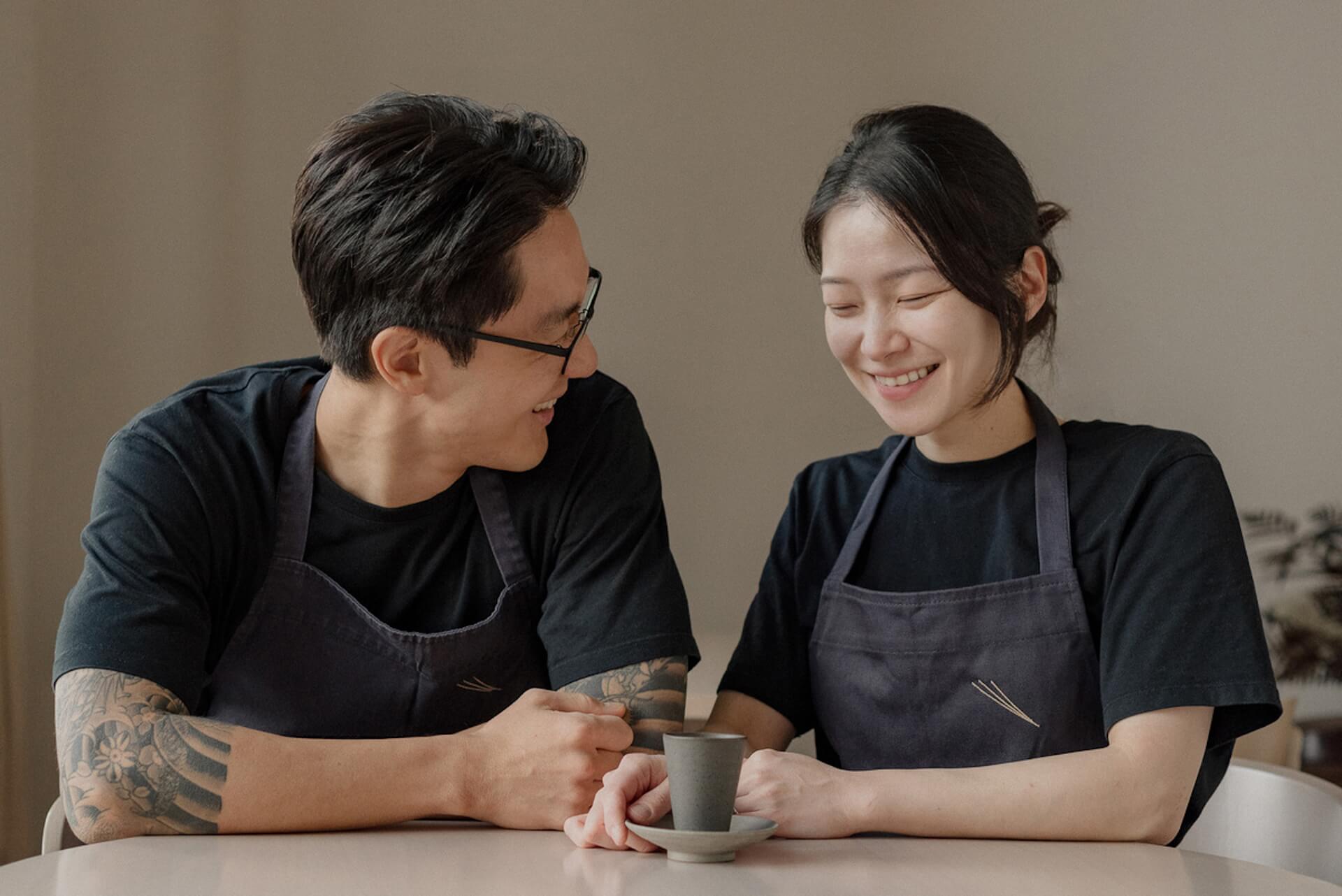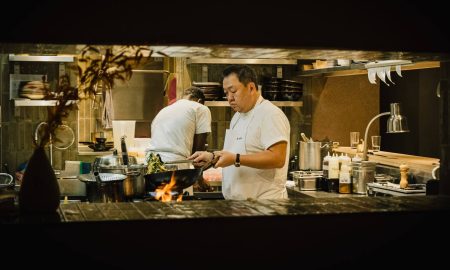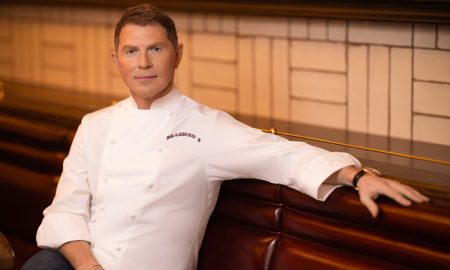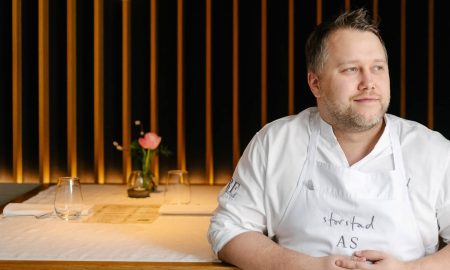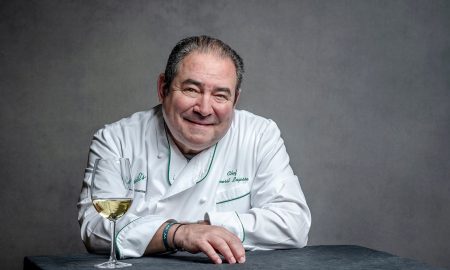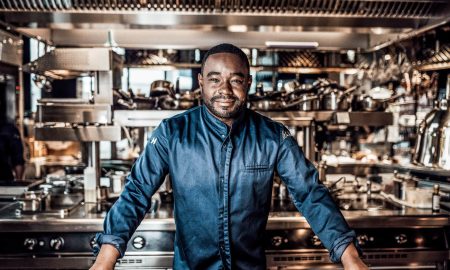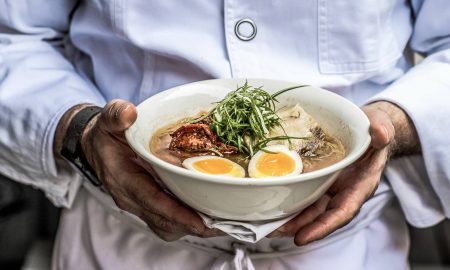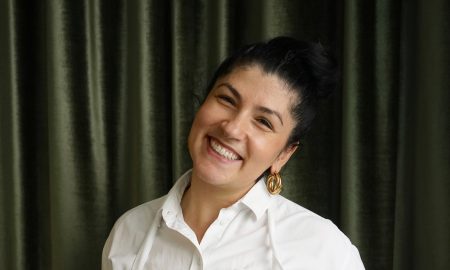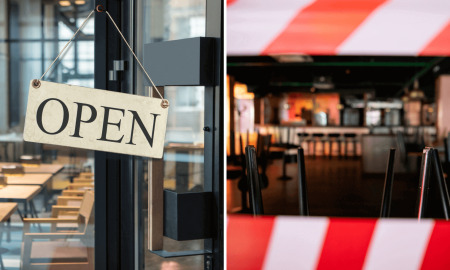A drop of ponzu here, a pinch of miso there – are there any Michelin-starred chefs out there who can still do without something Japanese? Sure. However, they are either deliberately swimming against the tide – or are named Woongchul Park and Bomee Ki. In this case, it’s about the latter two: A South Korean couple daring to do something new at Sollip, their restaurant in London. Instead of nigiris, yakitori and tempura, they opt for all kinds of South Korean dishes, such as nurungji, seoritae or dashima. Never heard of these? That’s what makes Sollip, the Michelin-starred restaurant in multi-cultural London, so unique.
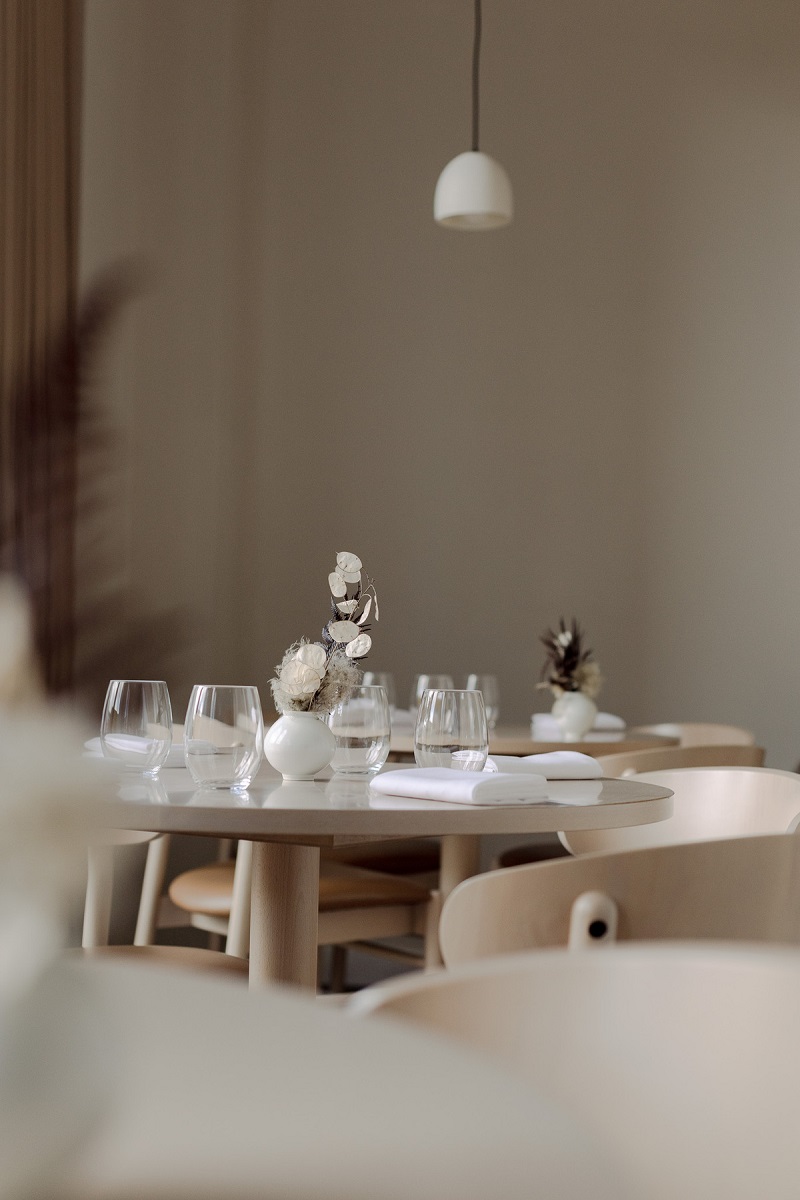
Image: Brian Dandridge
Traditional French craftsmanship is combined here with products, textures and techniques that are still rare in the world of star gastronomy – but could very well become the next big thing. The Michelin Guide awarded Sollip with one star in 2021, just a year after it first opened. By doing so, it showed that in the western world of fine dining, the subject of the well-known “Asian components” has been enriched by another dimension – one whose secrets Woongchul Park and Bomee Ki know better than most of their colleagues outside South Korea.
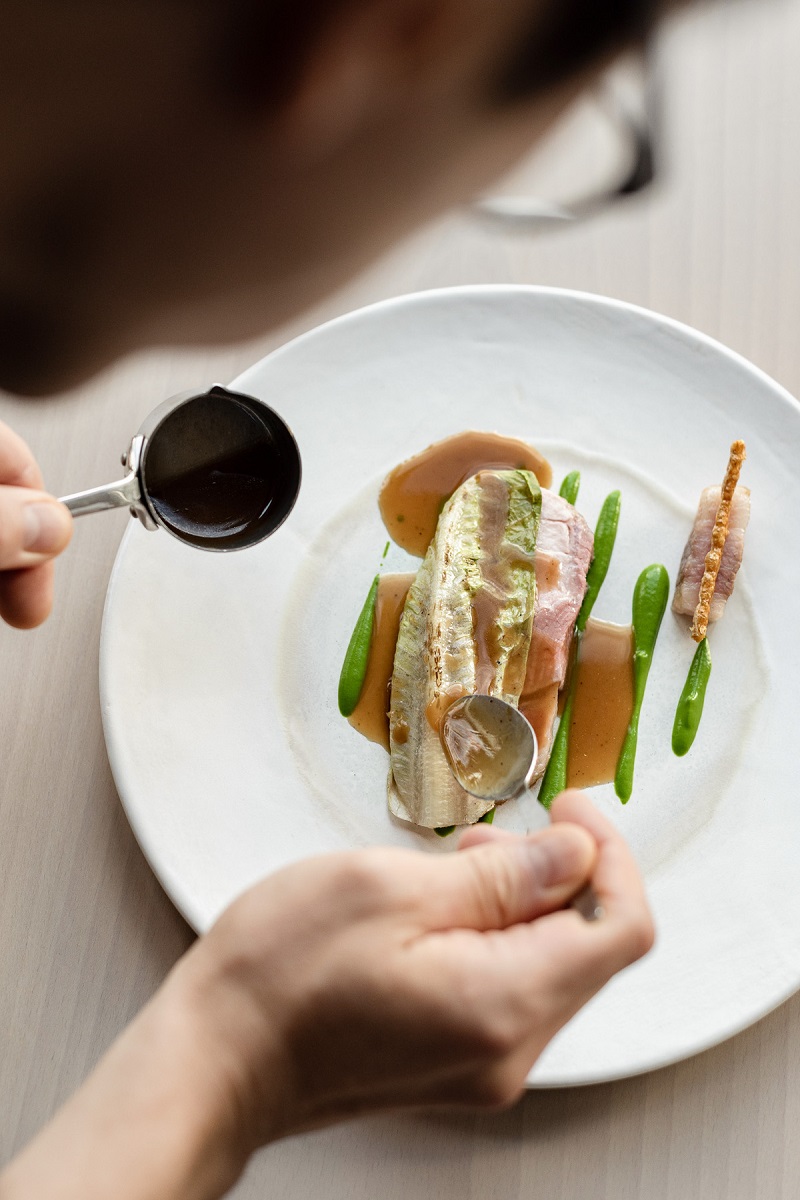
Image: Brian Dandridge
Sollip restaurant: Where French tradition meets South Korea
And this despite the fact that both of them actually know more about traditional French than Korean cuisine. In fact, if you add up the years they have spent in restaurants serving Western-style cuisine, their professional experience working with Korean food is surprisingly meagre. But that is precisely what makes the cuisine at Sollip so evocative. “We are Koreans who were raised in the country. I did my apprenticeship in Korea and grew up with Korean cooking traditions and tastes – that means this is in my blood. The French tradition, on the other hand, is something I had to learn,” says Woongchul Park.
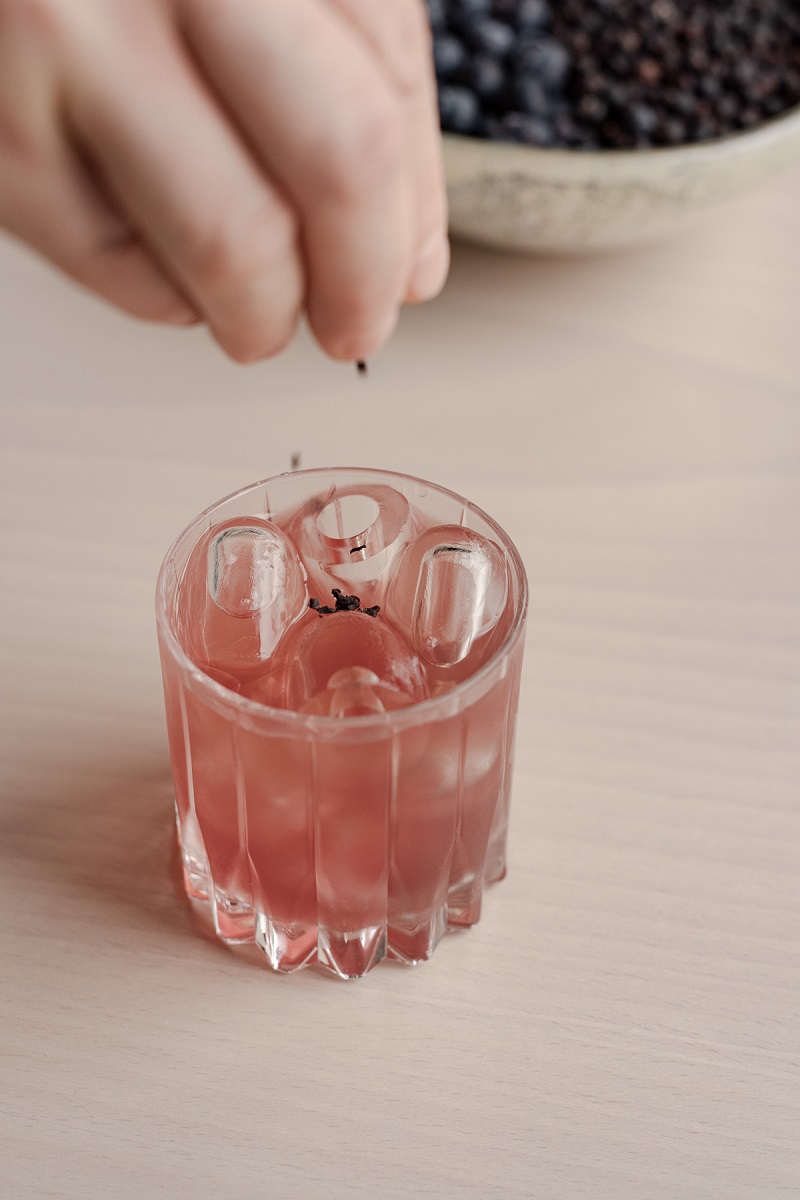
Image: Brian Dandridge
It was precisely this tradition that he devoted himself to obsessively during his years of training and traveling. First at home in South Korean, where he studied “Culinary Arts,” then in Boston, USA, where he discovered his fascination for fine dining at the Hyatt Hotel. “Then I wanted to add to what I could already do and decided to enroll in the Cordon Bleu school in London.” This is the ultimate elite chef course, which has produced countless successful star chefs to this day. While there, Park not only acquired the skills that would make him one of the most virtuosic in his field, he also met his future wife Bomee Ki.
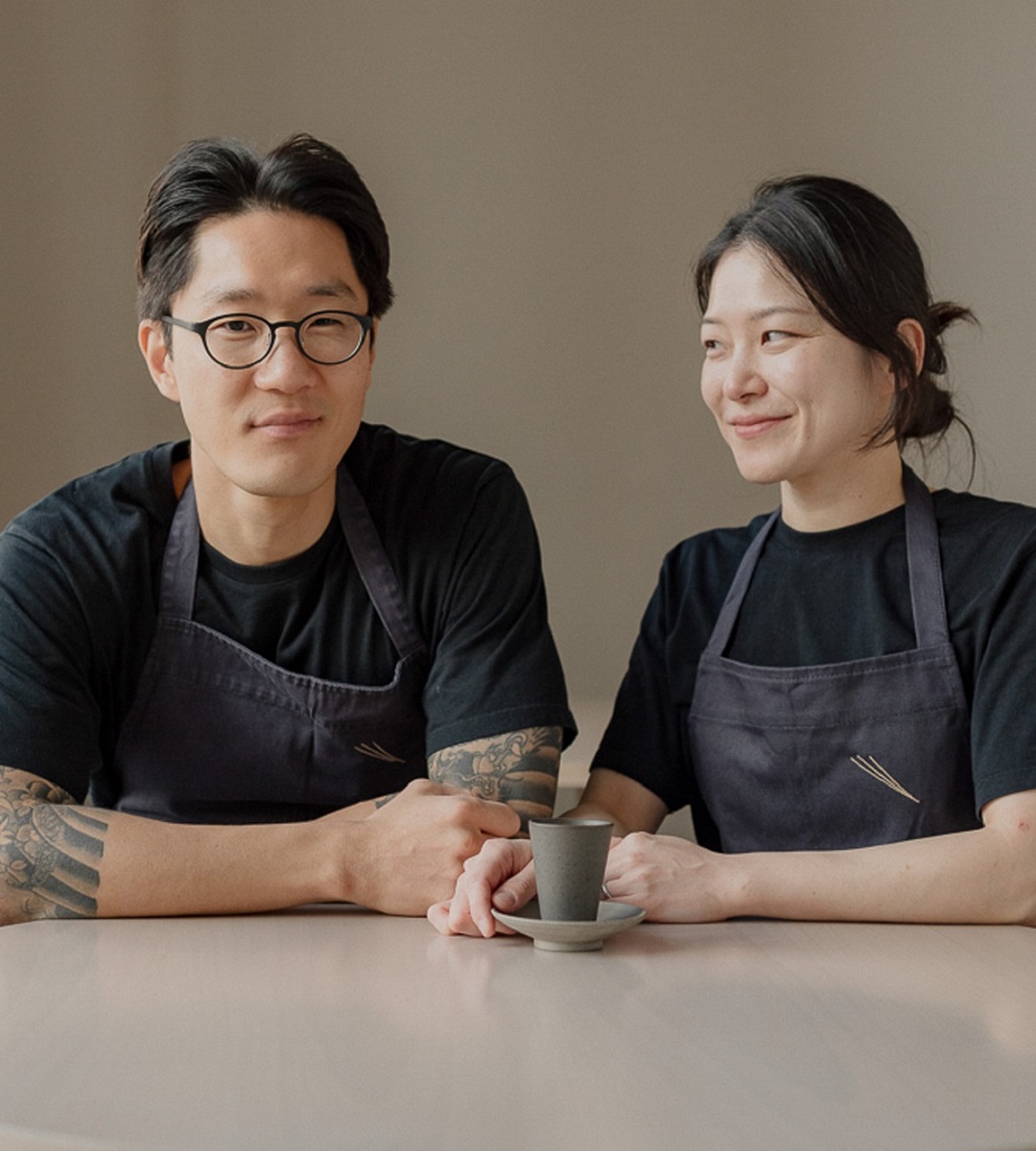
Image: Brian Dandridge
The Sollip menu: more than just Kimchi
“I’d go so far as to say that she’s the better chef of us two,” he says. What sounds like a self-effacing statement has a deeper meaning for him: Bomee Ki had enrolled in Le Cordon Bleu for pâtisserie. This is a profession Woongchul Park has admired since his earliest youth – but has not mastered, as he puts it himself. “When I was 13, I wanted to become a baker and confectioner. But then I realized that I lacked patience for this type of craft. That’s why I became a chef.
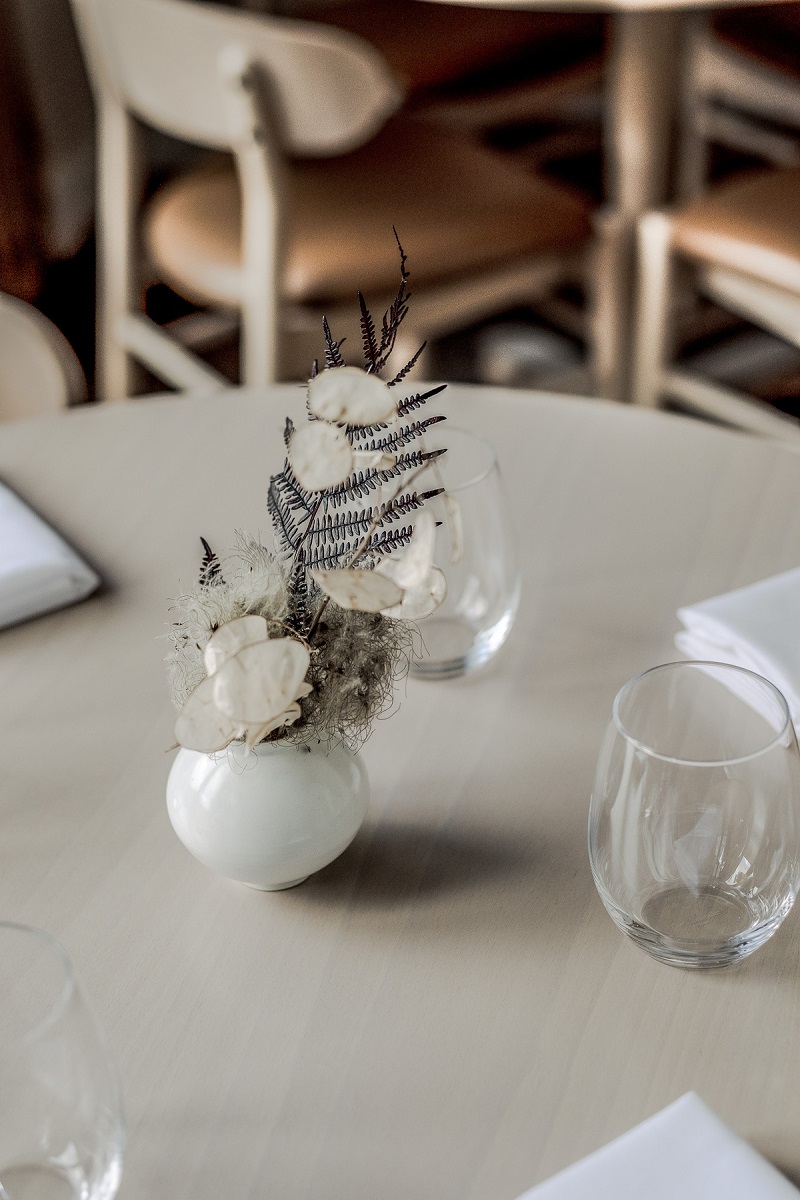
Image: Brian Dandridge
My wife, on the other hand, has this patience – and masters the pâtissierie craft in a way that I greatly admire.” This is demonstrated by desserts such as Black Pain Perdu, a South Korean interpretation of the rustic classic from France, in which stale white bread is soaked in butter, eggs and sugar and then pan-fried to a crisp. However, at Sollip, it is served with black Seoritae ice cream. Seoritae are soybeans with a black skin and a surprisingly green, chlorophyllic flesh. They are an essential part of the South Korean taste repertoire – also in fermented form – and give this dessert a balanced, slightly earthy note.
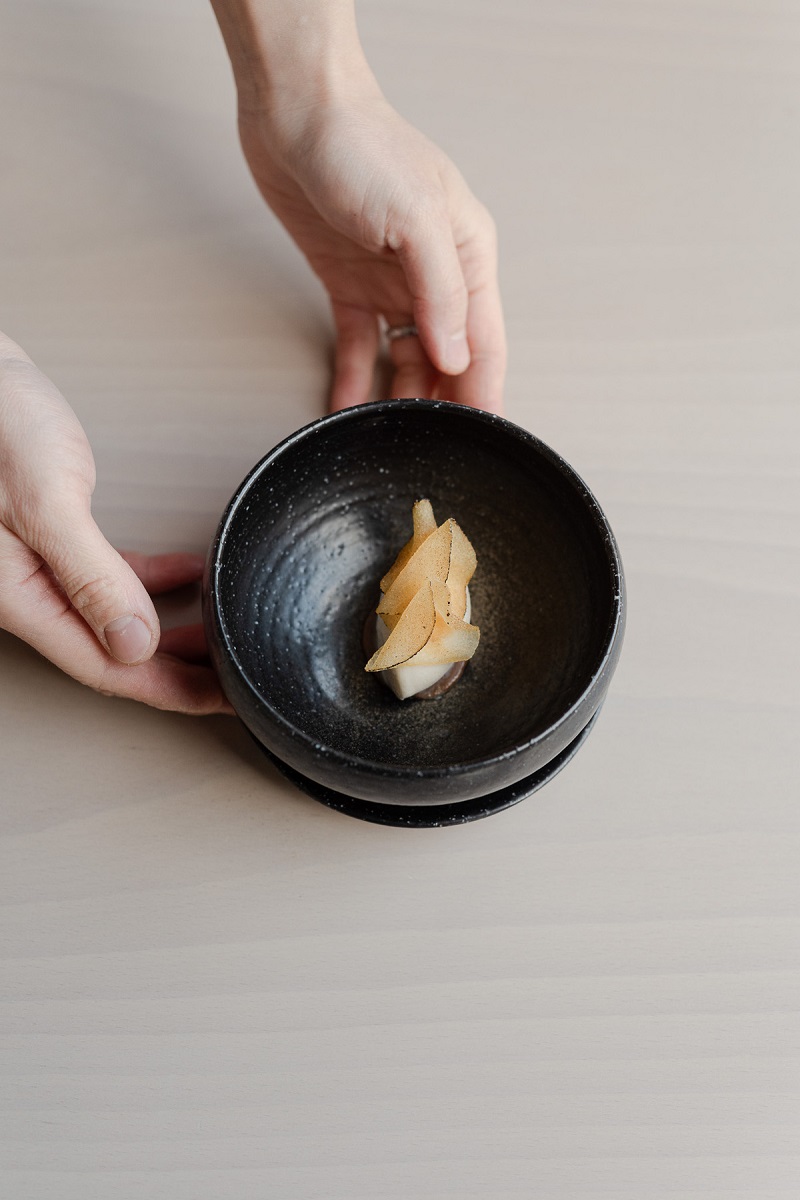
Image: Brian Dandridge
Sure, in the land of kimchi, people like to ferment a lot, as another highlight on the Sollip menu points out: Nurundji sourdough bread with dashima butter. Nurundij is a type of rice pudding and is considered heart-warming comfort food in South Korea. Woongchul Park uses this in a slightly fermented form as a base for both sourdough and bread dough. This not only makes the bread rise better, it also gives it a unique nutty flavor that adds a twist to the now somewhat worn-out sourdough fetish of Michelin-starred gastronomy. Not to mention dashima, the ubiquitous seaweed in South Korea, which gives the butter a full, iodized saltiness.
A Michelin-starred restaurant as a culinary cultural mediator
At Sollip Restaurant, Woongchul Park and Bomee Ki have created a style of cuisine that requires a certain kind of obsession – but which cannot function without a South Korean “heart and soul”. Thanks to the many memories they have of South Korean flavors, their dishes – a mixture of craftsmanship and emotion – can be varied in seemingly endless ways.
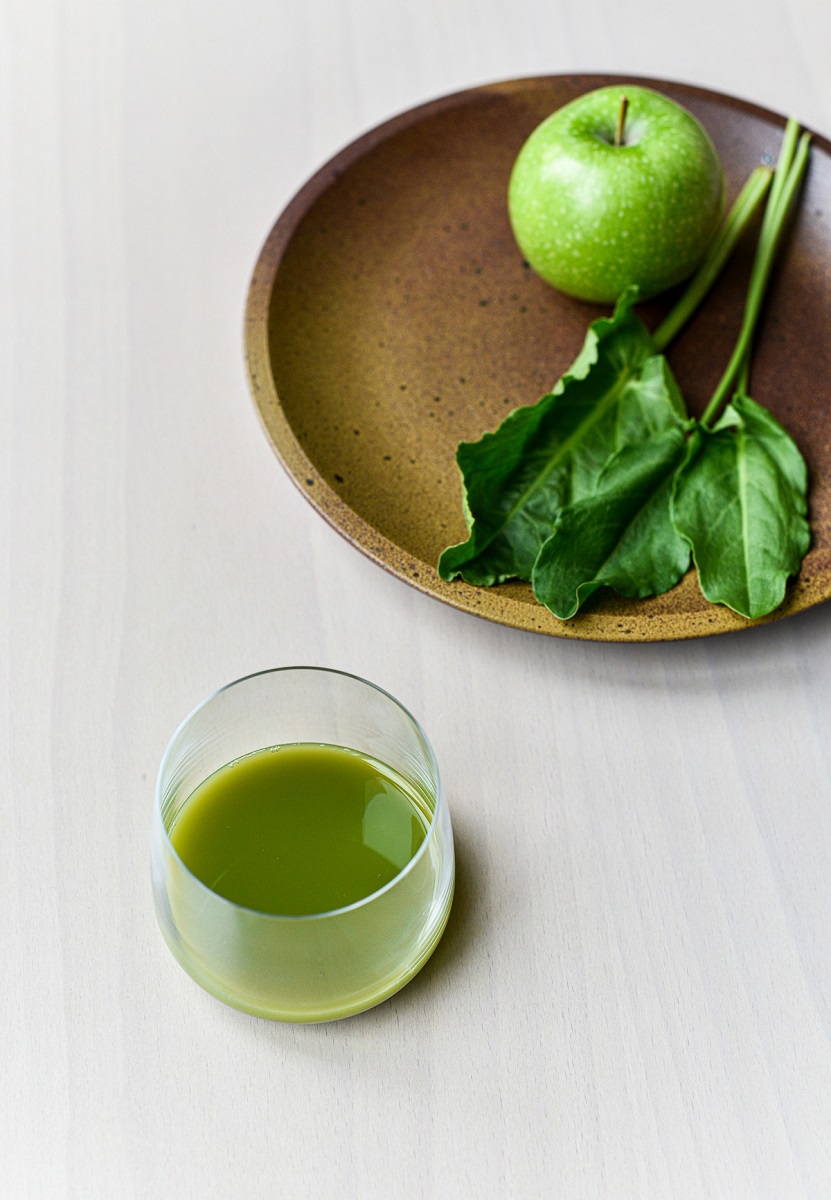
Image: Brian Dandridge
This is precisely why they want to concentrate solely on their restaurant in the future. “On the craft, of course, but also on the way we become better as a team. How we can make what we do even more meaningful and relevant,” says Woongchul Park, who considers a second restaurant or other expansion scenarios out of the question. “It’s not just us who still have a lot to discover when it comes to South Korean flavors combined with French classics. Above all, it’s for the people out there. Our focus is on offering you something new at Sollip.”


